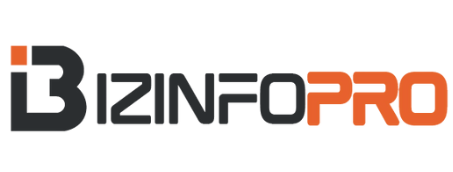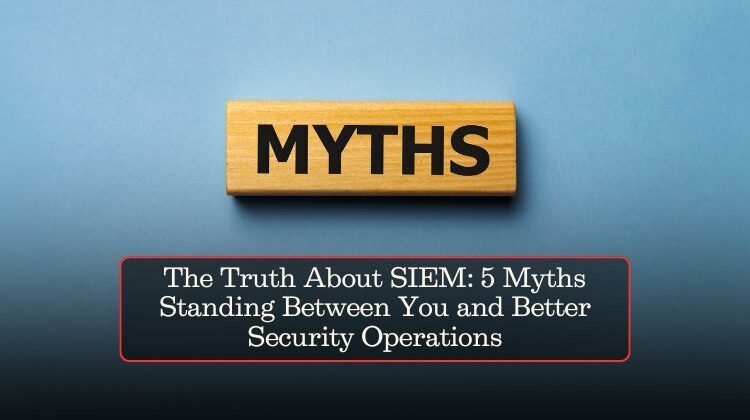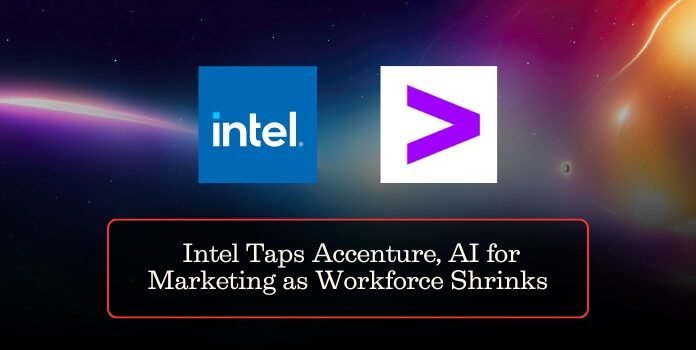
Intel Taps Accenture, AI for Marketing as Workforce Shrinks
In a significant realignment of its global marketing operations, Intel Corporation has announced plans to rely more heavily on external support from Accenture and integrate artificial intelligence-driven marketing solutions, resulting in a reduction of its internal marketing workforce.
The strategic shift, disclosed by company insiders and later confirmed in a statement by Intel, reflects the semiconductor giant’s continued efforts to streamline operations, reduce costs, and improve its marketing agility amid a rapidly changing digital landscape.
This move is part of Intel’s broader cost-cutting and restructuring initiative announced in 2023, with CEO Pat Gelsinger pushing toward a leaner, more competitive organization capable of navigating cyclical headwinds in the global chip market.
Transition Toward an Outsourced and AI-Driven Marketing Model
Intel’s new direction centers on two key components: outsourcing significant parts of its marketing execution to Accenture, a global consulting and professional services firm, and expanding the role of AI in campaign planning, execution, and customer analytics.
According to sources familiar with the transition, Accenture will take on operational responsibilities including digital advertising, content localization, campaign optimization, and performance analytics. Meanwhile, AI tools — developed both in-house and via third-party platforms — will be deployed to automate content creation, personalize messaging, and optimize media spend.
“In today’s data-centric world, marketing decisions must be made faster, smarter, and with greater accountability,” said an Intel spokesperson. “AI allows us to scale creative processes, predict campaign performance, and deliver more tailored experiences across regions. Partnering with Accenture enables operational efficiency at a global scale.”
Internal Cuts Spark Concern
While Intel did not disclose the exact number of roles affected, reports suggest hundreds of positions across global marketing teams will be phased out, particularly in regions where Accenture will now manage campaign execution.
Employees in content strategy, digital marketing operations, and field marketing roles were among those impacted. Intel emphasized that affected workers would receive severance packages, transition support, and access to career counseling services.
The cuts have raised concerns internally and across the tech community about the broader trend of outsourcing and automation displacing traditional marketing roles.
“This is a clear case of technology and outsourcing converging to reshape corporate functions,” said Andrea Moss, Director of Tech Workforce Analytics at MarketView. “Marketing teams that once relied heavily on creative and operational talent are now evolving into AI-augmented strategists or being phased out altogether.”
A Strategic Pivot Amid Ongoing Pressure
Intel’s move comes as the company continues to face macroeconomic challenges, supply chain constraints, and stiff competition from rivals such as AMD, NVIDIA, and newer chipmakers emerging from Asia.
Earlier this year, Intel reported mixed earnings, with data center revenues falling and margins under pressure, though progress in its foundry business and partnerships in AI computing showed signs of promise. Analysts believe this marketing realignment is another step in Intel’s ongoing transformation under Gelsinger, who returned to the company as CEO in 2021 with a mandate to reinvigorate growth.
“Intel is doing what many legacy tech firms must do — get leaner, faster, and more modular,” said Thomas Li, a semiconductor analyst at Helix Research. “The marketing shift reflects a broader need to reduce fixed costs and increase the velocity of go-to-market efforts.”
Accenture’s Expanding Footprint
Accenture’s involvement with Intel further solidifies the firm’s growing presence in tech sector operations. Already a partner to major companies in cloud, supply chain, and digital transformation efforts, Accenture’s expanded role with Intel now includes handling strategic marketing campaigns across multiple verticals.
Sources confirm that Accenture will embed cross-functional teams directly with Intel’s business units and work with AI-driven data dashboards to track campaign performance in real time.
“We’re seeing the rise of hybrid models — where consulting firms are not just advising, but actively executing with AI as a backbone,” noted Valerie Kim, an enterprise marketing strategist at StrategyPulse.
The Rise of AI in Enterprise Marketing
This shift at Intel highlights a growing industry trend: AI’s rapid infiltration of enterprise marketing functions. From generative content tools and predictive segmentation to automated media buying, AI is now being used to make marketing more real-time, data-rich, and performance-focused.
Intel has been investing in its own AI tools and recently revealed that several of its internal marketing platforms use natural language generation to produce product briefs, case studies, and tailored emails.
“AI doesn’t just reduce cost — it enhances precision,” said Eric Dawson, Intel’s VP of Marketing Technology. “We’re training models to identify what messages resonate best, where, and when — and that’s a capability you can’t scale through manual effort alone.”
Industry Implications: Marketing at a Crossroads
Intel’s decision underscores a larger inflection point in the tech industry. As companies adopt AI and automation at scale, traditional marketing departments are being restructured, and roles are being redefined or eliminated.
While this presents new opportunities for AI strategists, marketing technologists, and cross-functional data experts, it also threatens to displace legacy skill sets, especially in execution-heavy roles.
“This is just the beginning,” said Moss. “We’re entering a phase where enterprise marketing will be powered more by code and algorithms than by creatives and coordinators. The question is: who adapts — and who gets left behind?”









